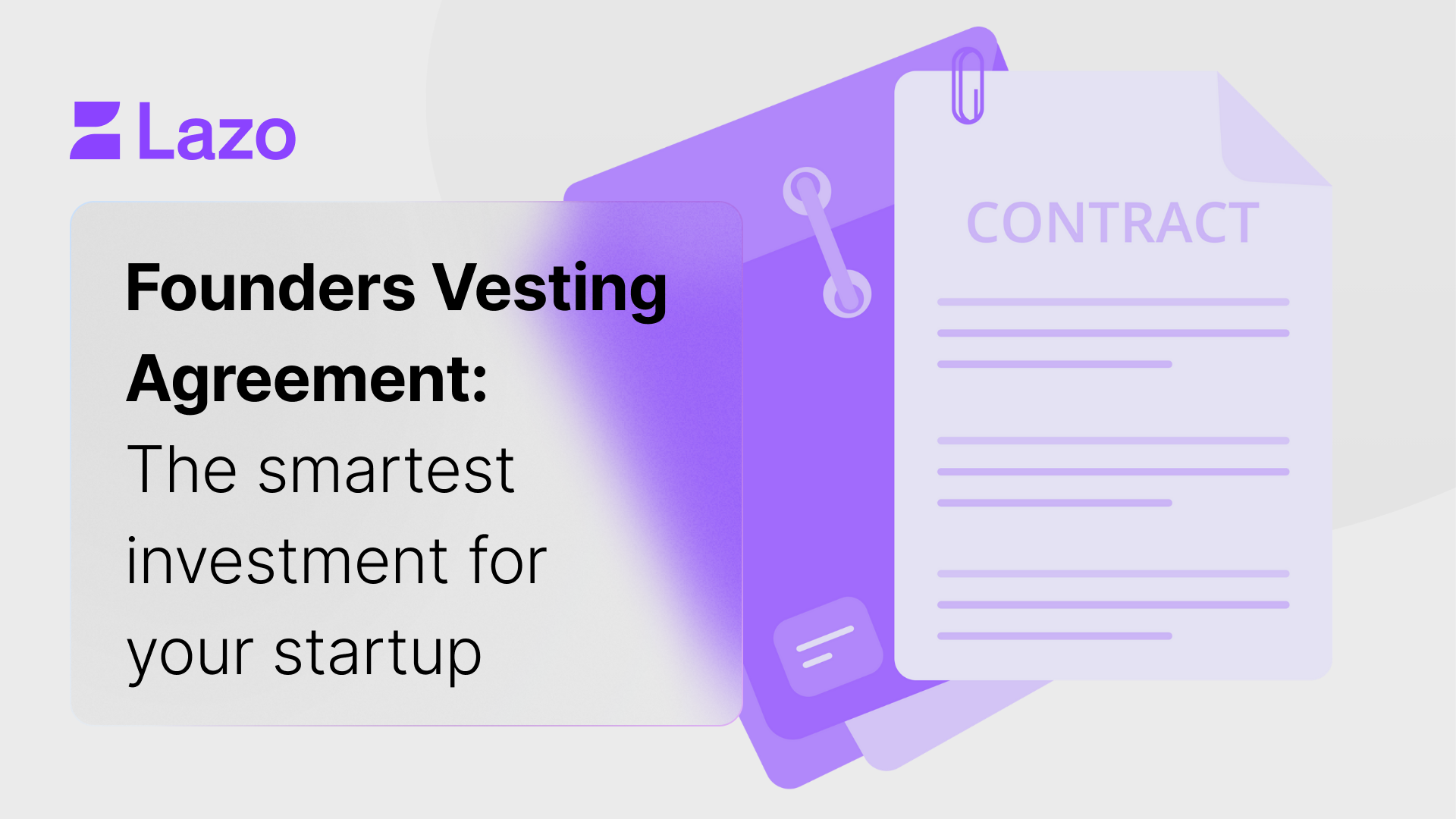Login to your Lazo One account here
Login

When you launch a startup with co-founders, excitement often runs faster than structure. You’re aligned on the mission, vision, and next big milestone. But what happens if one founder leaves early? Or stops contributing? Or if you raise capital and investors question ownership alignment?
A Founders Vesting Agreement (FVA) isn’t a legal burden; it’s a strategic investment. It protects your company, your co-founders, and your future.
Filing an 83(b) election when signing an FVA is essential for startup founders in the US. The 83(b) election notifies the IRS that you choose to pay taxes on the full value of your restricted equity (stock or units) at the time of grant rather than as it vests over time. By filing an 83(b), you are taxed upfront, when the fair market value is usually very low. This reduces your total tax burden and locks in the low initial value for tax purposes.
You must file the 83(b) election with the IRS within 30 days of your equity grant. Missing this deadline means you lose its tax benefits.
If you are not a US resident but you might move to the US or become a tax resident during your vesting schedule, filing an 83(b) protects you: it ensures that when you do become taxable, you will not owe ordinary income tax on equity as it vests, but only on the original low grant value.
📌 What a Founders Vesting Agreement really is (and why it matters)
📌 How vesting actually works and what clauses your agreement should include
📌 How it protects your startup, your equity, and your investors
📌 How Lazo helps founders build strong foundations from day one
Think of the FVA as an insurance policy for your startup. It’s a legally binding agreement among founders that defines how ownership is earned over time.
Rather than giving everyone their full equity on day one, it creates a vesting schedule that lets founders earn their shares gradually by actively contributing to the business.
This structure keeps everyone aligned, motivated, and protected. It prevents one founder from walking away with a large chunk of the company without delivering long-term value.
At its core, the FVA is not just a legal document; it’s a strategic governance tool that helps avoid conflicts, clarify expectations, and build trust among co-founders and investors alike.
The numbers speak for themselves: more than 80% of startups fail within the first seven years, and internal founder disputes are among the top causes.
A Founders Vesting Agreement builds resilience through:
💪 Long-term commitment: Founders earn equity gradually, keeping everyone focused and incentivized.
⚖️ Fairness: Shares reflect real contribution, not just initial enthusiasm.
🛡️ Protection: If someone leaves early, unvested shares return to the company.
🤝 Investor confidence: VCs and angels see vesting as proof of maturity, governance, and seriousness.
Without vesting, equity can become one of your biggest risks. With it, you turn ownership into motivation and clarity.
A Founders Vesting Agreement defines how each founder earns ownership over time. Instead of receiving all their shares upfront, founders vest them gradually by staying involved and contributing to the company’s growth.
The structure can vary, but every strong vesting plan includes:

When these clauses are clearly defined, vesting turns equity into accountability. It motivates founders to stay focused on building long-term value while reassuring investors that the team and ownership are stable.
Imagine one founder leaves six months in, taking 30% of the company. For investors, that’s a red flag. For you, it’s a nightmare.
An FVA prevents that by:
Founders with an FVA send a strong message: “We’re in this for the long game.”
At Lazo, we’ve helped hundreds of founders structure their companies for long-term success, from incorporation to fundraising prep.
We’ve seen too many promising startups break apart because they skipped this step.
Our team of legal and financial experts help founders design vesting agreements that make sense for their business model, stage, and investor expectations.
👉 Ready to protect your startup and build investor trust? Talk to us and set up your Founders Vesting Agreement today.